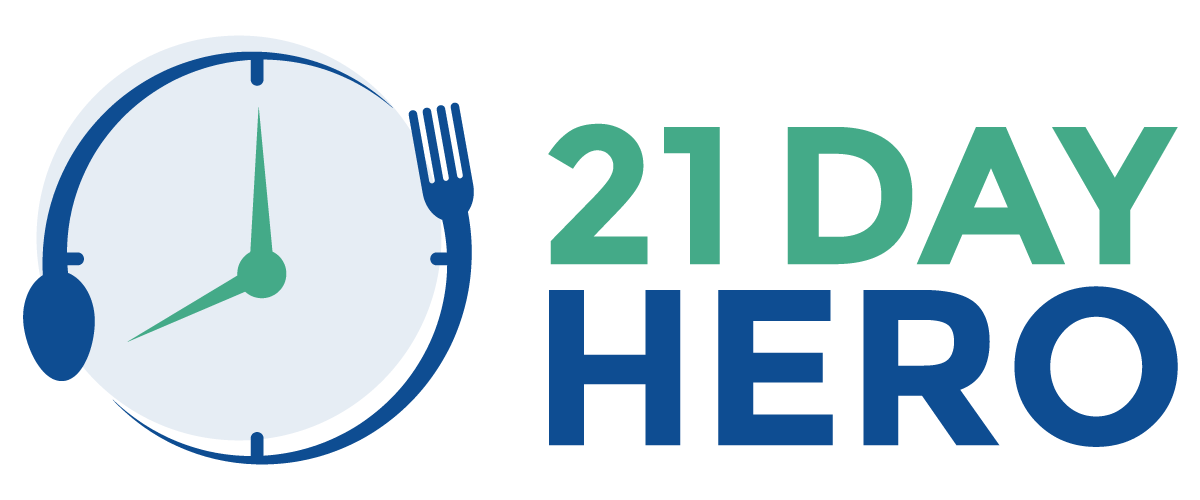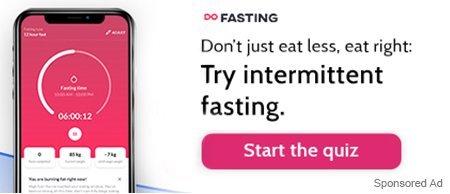What is dry fasting | Dry Fasting vs. Water fasting | Dry Fasting vs Intermittent Fasting | Benefits & results | Weight loss | Types of Dry fasting | 5 tips for beginners
I bet by now you have definitely heard about Intermittent Fasting and its countless benefits for your health, performance and even longevity. But what about dry fasting? The type of fasting that restricts all food and liquids (including water!) for a prolonged period of time?
Yes, dry fasting is real and in fact, it has gained a lot of interest over the last few years as an effective weight-loss tool.
Is it healthy and as effective as people say?
In this guide, we’ll take you through the good, the bad, and the ugly of dry fasting.
What is Dry Fasting?
dry fasting is a fasting protocol in which an individual stays away from the consumption of water (or any other liquid) and food for a specific period. Although it might seem like a new trend, the practice of dry fasting has its roots in ancient times and can be affiliated with both religious and spiritual reasons.
What are the Dry Fasting Benefits in a Nutshell?
- weight loss
- reduced body fat
- reduced inflammation
- lower blood pressure
We will cover these in great detail in this article. Proceed with caution when dry fasting.

Research supports the fact that intermittent fasting goes a long way in effectively reducing your weight and improving your health. While the most common methods of fasting involve the consumption of a reasonable amount of water, the case is different when it comes to dry fasting.
For instance, Jews practice dry fasting during an annual Yom Kippur celebration, when everybody from the age of 13 must fast for 24 hours. During this time no food or drinks are allowed (including water).
Muslims practice dry fasting every year during the month of Ramadan when they compulsorily go without food and water from dawn to sunset. This sums up to 12 and 20 hours per day for a total period of 29/30 days. Every Muslim has to follow dry fasting, except for pregnant women, nursing mothers, and other people suffering from specific health conditions.
But before we go any deeper into the topic of dry fasting, let’s first clarify how this type of fasting differs from other well-knowns fasting types.

Dry Fasting vs Water Fasting
Water fasting is the type of fasting when you are not allowed to eat or drink any other liquid BUT water. Meaning, while on dry fasting you are not allowed to drink any water at all, drinking water is allowed (and even encouraged) during a water fasting. Water Fasting is MUCH easier to follow to prevent thirst, dehydration etc. During a water fast, purification is the main function. Your body will purge toxins, wastes and other things the body does not need. During Dry Fasting, you undergo much more difficult conditions internally. You will become tired, hungry decreased urination, headaches and poor focus.
Dry Fasting vs. (regular) Intermittent Fasting
In theory, both dry fasting and water fasting could be performed intermittently. Yet, in most of the cases Intermittent Fasting is referred to as a type of fasting where one is allowed to consume ANY non-caloric beverages, including black coffee, plain tea, bone broth and even some diet sodas in rare occasions (yet this is not advisable due to artificial sweeteners).
So, which method is the best and how do they compare in terms of fasting results?
Is Dry Fasting Healthy and what results or benefits should you expect from Dry Fasting?

Many people believe that dry fasting is dangerous, and one shouldn’t move to attempt it at all. Yet, this method of fasting does have quite many fans that believe this is the best approach to fasting and the one that brings the fastest results.
If we look at science, there’s not much underlying research done to either support or contradict the statement. Most of the research regarding the topic of dry fasting was done in connection to Ramadan, where the following dry fasting results were observed:
- weight loss
- reduced body fat
- reduced inflammation
- lower blood pressure
Yet, there’s not enough scientific evidence to confirm whether dry fasting results would have been much different from regular water fasting or any other type of fasting.
In general, dry fasting benefits are very similar to the ones of water fasting and/or regular Intermittent Fasting, where non-caloric beverages are allowed.
Besides the above mentioned, the most common dry fasting benefits include:
Is dry fasting better for weight loss compared to other fasting methods?
This is probably the most important and relevant question for most of us.
Many people claim that abstaining from the water will help you lose more weight and burn more fat, as compared to regular fasting. Also, your results will be several times faster, mainly because dry fasting is the most extreme.
And yes, there is some truth in this because of the water weight loss. Since more than half of our bodies are made out of the water, when you restrict your water intake you lose some of your water weight, too. Depleting water intake before the competition is in particular popular between bodybuilders. However, such a ‘strategy’ is not sustainable – your water weight returns to normal once you break your fast.
But is there any scientific evidence to prove any of these claims?
It is difficult to confirm that one or another fasting method is better for weight loss. Most of the studies done compare the results of Islamic fasting during Ramadan (Intermittent Dry Fasting) with other types of fasting.
Recent research shows that the benefits are very similar when it comes to Ramadan fasting and other types of Fasting, meaning both groups noted weight loss, reduction in body fat, improvement in glucose tolerance and insulin resistance, and other cardiometabolic benefits.
Yet, no studies were done to compare if there is any difference in how fast the results are obtained or whether if one or another type of fasting is more effective in the longer term.

Types of Dry Fasting
There are three common types of dry fasting you should be aware of:
Intermittent Dry Fasting
As mentioned earlier, dry fasting could be done intermittently, just like the regular Intermittent Fasting we talk about in our 21-Day Intermittent Fasting Challenge.
Dry Intermittent Fasting consists of scheduled fasting and eating windows, and the most common methods are:
- 16:8 Dry Fasting: dry fasting for 16 hours and eating during the remaining 8-hour time frame
- 20:4 Dry Fasting: dry fasting for 20 hours and eating during the 4-hour time frame
Intermittent Dry Fasting is, in fact, the method followed by Muslims during the month of Ramadan. They would eat and drink during the early hours of the morning and fast for the rest of the day, which is usually about 12 to 20 hours of fasting depending on the time zone.
Prolonged Dry Fasting
Prolonged dry fasting is a fasting method where an individual abstains from food and all liquids for more than 24 hours.
However, since your body needs liquid for optimum functionality and performance, prolonged dry fasting is not recommended and should always be supervised by a health professional.
Absolute Dry Fasting
Absolute Dry Fasting is the most extreme fasting where any contact with water is not allowed. This includes washing dishes, taking showers, brushing your teeth, or any other activities you face in your daily life. Such extreme fasting is usually performed due to spiritual reasons and is said to increase gratitude, deeper faith, and increased awareness.
Dry Fasting: Golden Tips to get you started

Would you like to try dry fasting?
Follow our top 5 dry fasting tips to make your experience better and dry fasting results more significant!
*These tips are great for starting water fasting as well!
#1 Make sure dry fasting is the right choice for you
Dry fasting might help your body to cleanse and reap the benefits of fasting faster. But, cutting off both food AND water from your diet could be dangerous to your health.
Especially if you are suffering from any condition that requires staying hydrated, are pregnant or breastfeeding. Hence, it is best to consult your doctor to determine whether it’s safe for you.
# 2 Go slow and prepare your body in advance

If you decide to follow any type of fasting, including the regular water fasting, it’s a good idea to prepare your body a few days or even weeks ahead of intermittent fasting by cutting down on calorie consumption.
When doing so, ensure that you consume enough healthy fats coming from sources such as avocado, fatty fish, nuts, etc. Also, consider reducing your caffeine consumption to reap the full benefits of fasting.
#3 Start With Water Fast First
You should only experiment with dry fasting after you tried water fasting first for a couple of weeks. 16:8 Intermittent water fasting, which allows you to drink water during your 16-hour fasting window is the perfect start for you.
If you are new to fasting, our 21-Day Intermittent Fasting Challenge is the perfect starting point for you! During 21 days you’ll receive all the information and support you need to get started with 16:8 Intermittent Fasting (the most sustainable and healthiest fasting method) and make Intermittent Fasting a sustainable lifestyle!
#4 Increase your fat intake before your dry fast
Have a ketogenic meal high in fat before your fast to reduce any discomfort while doing a dry fast.
There was a small study done that compared how different pre-fast meals affect the discomfort experienced during the 24-hours dry fast. It revealed that protein-rich meal greater discomfort and more side effects were observed, as compared to a high-fat meal.
Not sure what to eat on a Keto diet? We got a perfect 21-Day Keto Fasting Meal Plan that will show you exactly what and when you need to eat to reach optimal results. The meal plan is full of easy-to-cook yummy recipes and includes three weekly shopping lists with simple products. No more thinking and research needed!
You can get your Keto Fasting Meal plan here.
#5 Stick to your fasting schedule for ultimate results
Say you tried dry fasting and would like to continue further?
Depending on how you felt, you can conclude on whether you’ll like to engage in such kind of dry fasting for longer periods or not. The more consistent your fasting schedule is and the longer you do it, the higher are the chances of reaping more health benefits.
However, if you observe any adverse effect whatsoever during your dry fasting period, it’s a signal for you to take a break and rather stick with water fasting. Or abstain from fasting whatsoever.

The Bottom Line
Always be careful when you start dry fasting, dehydration can become a problem if you don’t monitor your body. If done correctly you can experience benefits, but always proceed with caution and under medical supervision.
Given there’s not enough research available in comparing different fasting methods, it is difficult to draw a conclusion whether Dry Fasting is better than other types of fasting, such as water fasting or your regular 16/8 Intermittent Fasting.
The best thing is to try it for yourself and see how your body (and mind for that matter) reacts to dry fasting. If you like it – go ahead with it, and if not – stick to your regular fasting instead.
If you are new to fasting and/or need more support to make Intermittent Fasting stick, hop on our 21-Day Intermittent Fasting Challenge. Soooo many people lost weight, tremendously improved their relationship with food and got back their energy to exercise while doing the challenge!
Would you like to be one of them and share your achievements with a smile on your face?













One Response
This is a great post. I love all of your posts Jason.